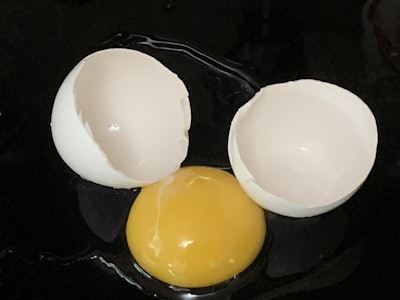
Eggs are widely recognized as one of the best sources of proteins for human nutrition. Combining an excellent composition of essential amino acids, the key protein building blocks that we must find in our diet, with outstanding bioavailability, nature has provided the ideal food to feed us all, young and old. However, there is more than just nutrition inside an egg.
The hen deposits within the egg all of the nutrients and molecules necessary for the chick’s rapid development. In nature, since this embryogenic process takes place without further contact with the mother hen except for heat, and only gas exchanges through the shell connect the embryo to the outside world, it should come as no surprise that the egg must contain some amazing molecules.
Among these molecules, lysozyme is probably the best-known egg white protein and has numerous commercial applications.
Lysozyme, effective against Gram+ bacteria, is used in a number of health care products, mostly for topical application. The antimicrobial activity of lysozyme contributes also to the control of unwanted flora during wine and beer fermentation and is used as a substitute for sulfites in wine production. Finally, lysozyme has been added as an active ingredient to films in contact with fresh foods, such as meat, fish, poultry, fruits and vegetables, to ensure food quality and safety.
Mysteries to solve
The study of proteins, or proteomics, has made tremendous progress over the past 20 years. From about 60 proteins identified in the early 2000s, the publication of the chicken genome along with the development of mass spectrometry-based high-throughput techniques have allowed the identification of more than 600 proteins inside the egg, including 316 proteins in the yolk, not really known as a source of proteins.
Compared to the egg white, proteins in the yolk are usually present in minute amounts, which has hampered their identification and overall study. We are still unclear about the role and mode of action of many proteins in the yolk and vitelline membrane. In addition to the obvious role in embryonic development, the known functions of some proteins include, among others, antimicrobial, antihypertensive and antioxidant properties.
More knowledge about the role of these proteins will likely lead to more applications in various fields, such as food processing, the development of new nutritional supplements or human medicine. Remember, it is not only inside the egg that the hen has deposited some amazing molecules. More than 500 proteins have also been identified in the eggshell and most have yet to reveal their secrets!

















